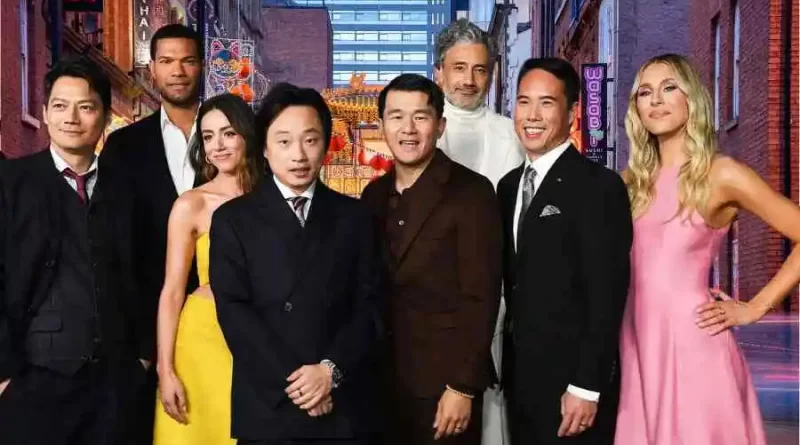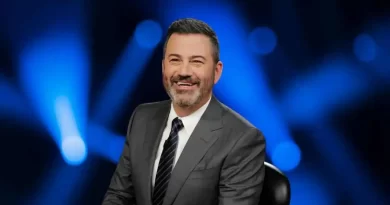Last Laugh by ‘Interior Chinatown’ stars: Asian American actors pay Hollywood back in their own coin
An Asian metaphor ‘One set of an elephant’s teeth for being visible, another for eating’ fits well for the newly launched series “Interior Chinatown.” Well, here the conning up by the series actors as their roles demand from them comes into play as they slide from extracting valuable insights by being invisible and at times, visible.
Wilis Wu, the character played out by Jimmy O. Yang, does exactly that while exploiting the ‘stereotyped’ Asian American image to hilt! And this happens when his brother vanishes as if from the scene and he is forced to investigate the matter. Yang plays the role of a Chinatown waiter in the series.
And it is also a fact that Yang finds the chords touching somewhere when he relates the new role played by him with an earlier role in “Chinese Teenager #1.”
Ignored by the police procedural, for which they work, they find themselves engulfed by the reality in Chinatown once the limelight is off. Actually, it is just a scene, for what’s shown here is a show within a show. As extras, their roles show much about the way the city treats them, expecting them to fit in the ‘stereotypes’ the latter have formed about Asians.
The series “Interior Chinatown” has been developed from the contents taken from the National Book Award-winning novel of the same name, “Interior Chinatown,” by Charles Yu. The now-famed roles are played by Yang, Chloe Bennet, and Ronny Chieng.
The lead actor in the series “Interior Chinatown, Willis plays the background role of a Chinese food deliveryman and a techie. Exploiting these stereotypes to the hilt, he is able to collect much information for the procedural. “They expect you to know kung fu; they expect you to be a good student, or the model minority tech guy,” says Yang.
We are shown the facade says the “Interior Chinatown” star
As an Asian, his role mirrors the approach of the American masses toward other communities of a different origin. “We’re shown the facades, the Chinese words, the kitschy restaurants, but what you don’t usually see is behind the scenes,” he said. It’s the ‘ignoring’ part of the US psyche that comes to the fore in the series.
As for Yang, he finds playing the role satisfying, in as much as the series provides a platform for him to divert his focus from comics to being a multiple personality. “I love subverting expectations—that’s what the show is about, and that’s what my career has been about,” Yang added.
However, the series comes with its own Asian point of view so mirrored around by ‘Fatty Choi,’ played by Chieng. His is a stubbornness that impresses though, which refuses to follow the diktats of a ‘Pied Piper,’ the latter having a possibility of leading him through the ‘obvious’. Working in a Chinese restaurant, Fatty, along with Willis, remains a defendant of what he believes in intensely. “[Fatty] represents this idea of not pandering to a white society that doesn’t even see you or want you around,” Chieng said.
Only that Willis remains a bit flexible up to the point of pandering his job demands, nothing more, nothing less, as at the core, he too is a believer.
“We were really strategic with when to highlight the fact that I came from both worlds,” Bennet said. It’s almost echoing the same sentiments as Chieng displays as his outside demeanor and Willis keeps that as his core belief. Chloe plays her role with ease when she is able to slide quickly in either of the two, as and when the job demands. Playing the role of Detective Lana Lee, she is nevertheless considered a valuable asset by her procedural unit.
Only as far as she can gather information by being a “Chinatown insider.” Lee, here, is a biracial cop who is again, as the series emphasizes, treated as a mere outsider in “Black and White.” We were really strategic with when to highlight the fact that I came from both worlds,” Bennet informed. As such, she was concerned about each minute detail regarding her wardrobe, the lighting cues, and her overall demeanor.
Her catharsis came to the fore when she played the character who portrays her own helplessness in real life. “I didn’t realize how much I needed to play her and how much of her story is still so relevant to my life. I felt so seen by the way Charlie [Yu] wrote her inner dialogue,” explained Bennet. Hollywood, indeed, is still at a loss as to what to make out of her biracial origins, a fact that Bennett has put forth publicly.
“We need to pay attention to who’s in the background and recognize them as people who have their own stories, their own tragedies, and their own goals,” Chieng (Fatty Choi) reiterated. He was forthright while discussing the satirizing part of the series “” Interior Chinatown,” which he said was with the objective of showcasing Hollywood’s failures. He hoped that the audience would walk out of the theatres with their curiosity arising about the individuals who are at the borderline of a larger society they live in.








